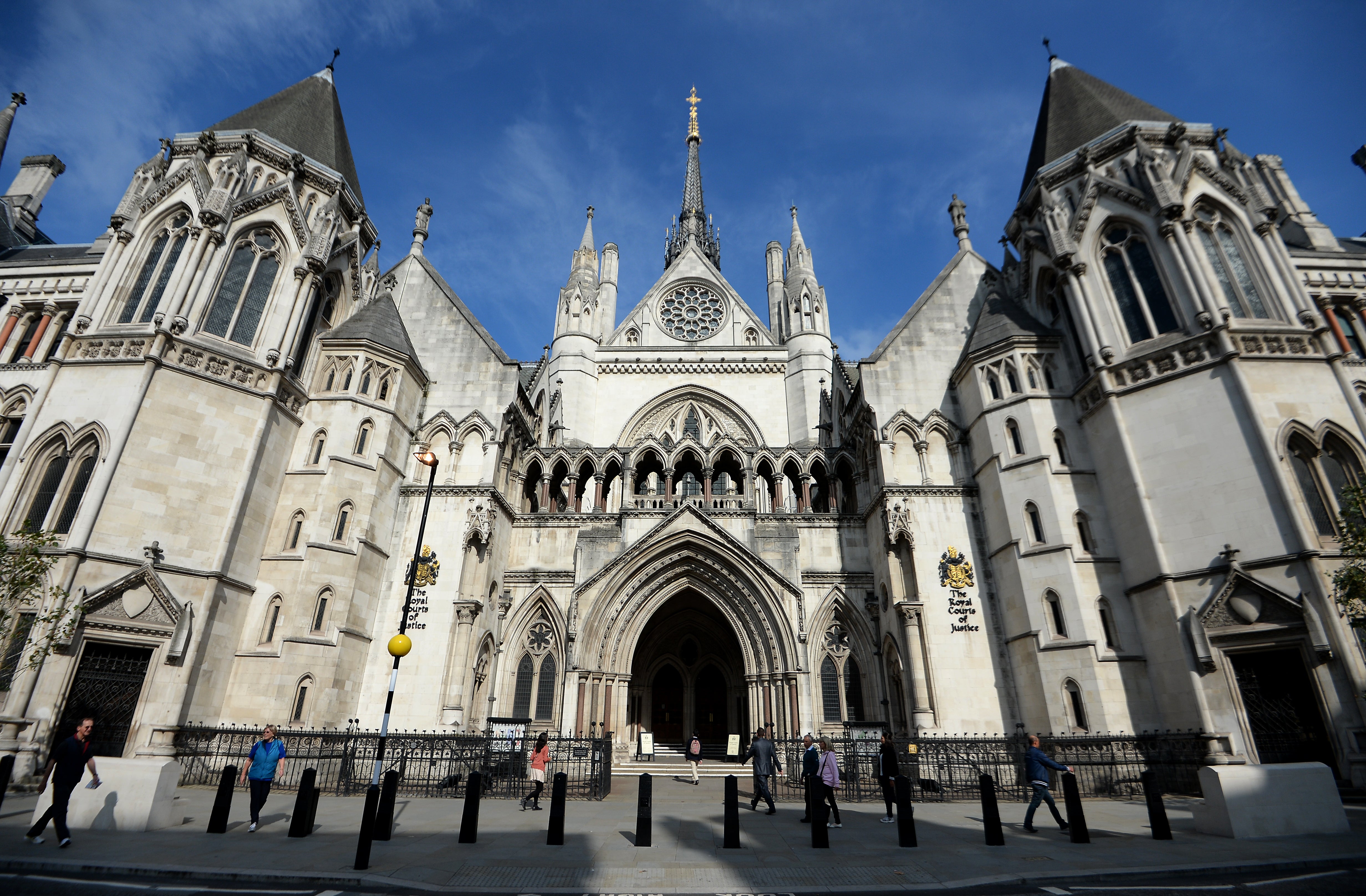Judges who released alleged violent offenders due to barristers’ strike ‘acted unlawfully’
High Court to decide whether trial delays caused by ongoing strike are a legal reason to keep people in prison before trial

Judges who released alleged violent offenders from prison because of delays to their trials acted unlawfully and the decisions should be quashed, the High Court has heard.
The men were being held ahead of trials due to take place in Manchester and Bristol but were freed on bail after the barristers due to represent them went on strike.
They are among several cases where judges have refused to extend custody time limits, which govern the amount of time defendants can legally be held in jail before trial, over the Criminal Bar Association’s ongoing industrial action.
A hearing at the High Court on Monday heard that only two cases are being challenged because of time constraints, but the ruling will have implications for many others - including a case at Oxford Crown Court that saw alleged murderers released on bail.
Dame Victoria Sharp KC, president of the King’s Bench Division, said the “unresolved dispute” over legal aid funding was ongoing and that other legal challenges were “waiting in the wings”.
“We have nothing before us saying the dispute is coming to an end,” she added.
“We have to consider the implications of the decision made not just on these individual cases but for the future, because we can’t have an endless stream of [individual challenges].”
The senior judge, sitting alongside Mr Justice Chamberlain, will rule on arguments over whether the barristers’ strike amounts to a “good and sufficient cause” to extend a defendant’s custody time limits.
Judges in the challenged cases at Manchester and Bristol crown courts ruled that it was not, but a barrister appearing on behalf of the director of public prosecutions argued they were wrong.
Tom Little KC said that the lack of a defence barrister because of the strike “can amount to some other good and sufficient cause” to keep a defendant in prison and accused the judges of making rulings based on their “individual views”.
He added: “While it is invidious for any view at all to be expressed on the merits of the industrial action, the prospect that judges will reach different conclusions on the issue is one which will lead to inconsistent and unfair results.”
He pointed to comments by Judge Peter Blair KC, sitting at Bristol Crown Court earlier this month, who ruled that the absence of a lawyer arose out of the “chronic and predictable consequences of long-term underfunding”.
Mr Little argued that Judge Tina Landale, who reached the same view in a separate case in Manchester, had also blamed the government for the lack of defence representation and that both had failed to carry out the required analysis of the individual cases.
Barristers representing the three defendants in the cases being challenged argued that the judges had not acted unlawfully and said nothing “that was wrong, improper or inaccurate”.
David Hughes, representing the Bristol defendant, said Judge Blair made his ruling “from a position of considerable knowledge and experience” and was not expressing a personal view, but “the reality of the situation”.
“This was a well-known problem that was going to occur, not only in this case but in courts all over England and Wales very widely,” he added.
Benjamin Knight, representing one of the Manchester defendants, said in written submissions that Judge Landale “did not stray into assessing the merits of the CBA action” but had noted it was “foreseen and foreseeable”.
Barry Grennan, representing the other Manchester defendant, told the court judges faced making decisions over cases that had “absolutely no chance whatsoever of being heard within the custody time limits” and argued that the barrister pay dispute had become a “predictable and persistent problem” that dated back to April.
He said defendants in the Manchester case could have faced up to 10 months in custody before their trial was heard if their custody time limits had been extended.
The High Court heard that the government could choose to change the law so that the crown court custody time limit of 182 days is extended, and that judges will not be able to grant extensions on cases if the absence of defence barristers becomes “systemic”.
Dame Victoria said it would not be lawful for the “exception to become the norm” under the current law, which was designed to allow limits to be extended on rare occasions and for exceptional reasons.
Justice Chamberlain warned: “We could get into the situation where, in a large number of cases, the custody time limit has been doubled, and nobody has put an instrument before parliament to do that.”
The judges requested information on the current position of the Ministry of Justice and Criminal Bar Association and the state of crown court backlogs.
Louis Mably KC, acting as an impartial advocate to the court, said that “systemic delays” cannot be a lawful reason to keep defendants in custody beyond the statutory limits, but that the barristers’ strike had not yet reached that threshold.
He warned that there could “come a point where it becomes systemic”, asking: “Has the point been reached where the court is rubber-stamping a routine delay in criminal proceedings or is the court dealing with an exceptional situation it can address in the short term?”
Mr Little told the court that the Crown Prosecution Service is not part of the dispute over legal aid payments and was not making any argument about the “merits” of the CBA’s strike, but was seeking “clarity and some certainty” with the legal challenge.
The High Court reserved its judgment, which will be given at a future date.


